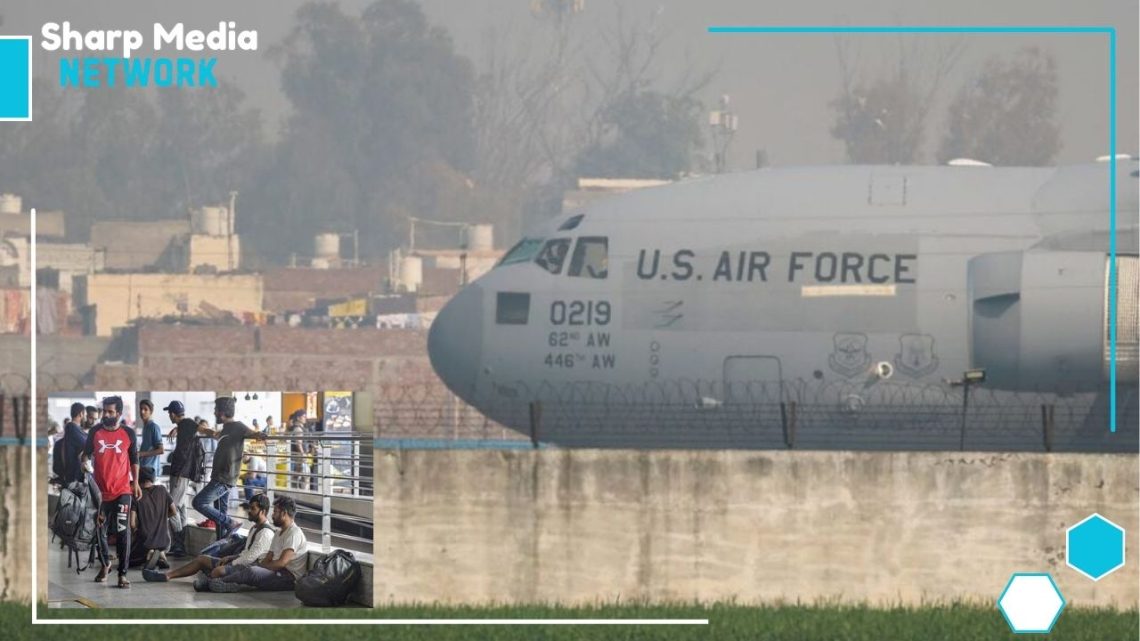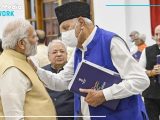
Modi’s Silence on Deportation of Indian Immigrants from US: A Contradiction in His Foreign and Domestic Policies
February 6, 2025Modi’s silence on the deportation of Indian immigrants from the U.S. sheds light on the contradictions between his domestic policies and the treatment of his people abroad.
The Indian government’s silence on the deportation of illegal Indian immigrants from the United States has sparked significant controversy. The deported individuals were reportedly chained and handcuffed during their flights in U.S. military planes, a treatment that raised serious concerns about the nature of India’s relationship with the U.S. This incident has created a rift in the supposed “friendship” between the two countries, especially in light of how these deported individuals were treated.
These immigrants, primarily Hindus from Modi’s home state of Gujarat and neighboring Haryana, were deported after violating U.S. immigration laws. What has raised eyebrows is the fact that the Indian government chose to have them land in Amritsar, one of the most sacred Sikh religious centers, which many found both ironic and insensitive. Amritsar is seen as a symbol of religious significance for Sikhs, and the decision to send these deportees there adds a layer of political and religious complexity to the situation. This action only increased questions about Modi’s awareness, or lack thereof, of the human cost of his policies, especially those affecting the Indian diaspora abroad.
The lack of response from Prime Minister Narendra Modi or his government to the deportation incident has raised several questions. It brings into sharp focus a contradiction between Modi’s strong domestic policies and his indifferent stance toward the treatment of his own people abroad. While Modi has consistently focused on promoting national pride, making grandiose statements about India’s global standing, and pushing the Hindutva agenda, this episode paints a picture of a leader who remains silent when his people are humiliated overseas. This stark contrast suggests a political approach driven by ideology, at the expense of compassion for the very citizens he claims to represent.
Many of the deported individuals came from Gujarat, Modi’s home state. This personal connection makes his indifference to their plight even more troubling. Modi’s refusal to comment or take action reflects poorly not only on his leadership but also on his handling of the Indian diaspora. It raises serious questions about whether the Prime Minister’s allegiance to his political ideology—Hindutva—takes precedence over the welfare of Indian citizens, even when they are subjected to mistreatment in foreign countries.
This episode may also point to underlying tensions in the relationship between India and the U.S. Former President Donald Trump’s stance on immigration, especially the aggressive deportation of immigrants, was widely criticized. It is possible that Trump, who frequently interacted with Modi during his presidency, began to see the true face of India’s leadership—one that is perhaps more interested in leveraging the Indian diaspora to promote its domestic political goals rather than advocating for their protection abroad.
The treatment of these deportees highlights a key contradiction in the relationship between India and the U.S. Despite the India-U.S. alliance being portrayed as a strong partnership, India’s lack of action over the mistreatment of its citizens abroad underscores a troubling disconnect between the two countries. Furthermore, it raises the question of whether Modi’s leadership, which often prioritizes nationalism and the Hindutva agenda, is placing the Indian diaspora in a vulnerable position.
The broader implication of this incident is the inconsistency between India’s nationalistic rhetoric and the reality of its international actions. Modi’s government is quick to call out foreign countries for human rights violations, yet when it comes to addressing the mistreatment of its own citizens abroad, the response has been chillingly absent. This silence is not only politically problematic, but it also erodes trust in India’s leadership on the global stage.
It’s also worth considering the geopolitical ramifications of this event. In light of the complex history between India and Pakistan, as well as India’s growing global presence, this incident could be seen as an indicator of how Modi is willing to prioritize his ideological stance over the well-being of Indian nationals. It suggests that the BJP-Modi government’s focus on the Hindutva agenda may have far-reaching consequences for India’s foreign relations, especially with the United States, which has historically been a key ally in various global initiatives.
As Modi’s government continues to champion the idea of a “New India,” this episode brings attention to the gaps in his foreign policy and its impact on the Indian diaspora. The actions, or lack thereof, regarding the deportation of Indian immigrants are a reminder that the well-being of citizens should not be sacrificed for political expediency or ideological pursuits.

